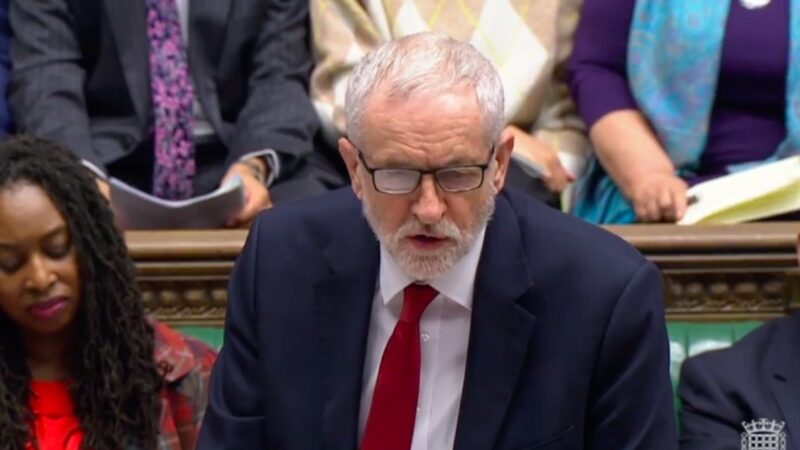
The first Prime Minister’s Questions of the new parliament was dominated by debate over the recent actions taken by the United States and Iran, which saw Jeremy Corbyn raise the risk of “full scale war”. The Labour leader and Prime Minister were agreed that any further retaliation should be opposed due to this risk – but Corbyn also suggested the US killing of Qasem Soleimani was an “illegal act”.
“The strict issue of legality is not for the UK to determine,” Johnson replied, before arguing that the US “has a right to protect its bases and its personnel”. He said Soleimani was responsible for attacks on innocent civilians through arming the Houthis and Hezbollah with missiles.
Corbyn: What evidence attack on Qasem Soleimani was “not illegal”?
Boris Johnson says issue of legality not for UK to determine but US has “right to protect its bases”, adding that Soleimani “has blood of British troops on his hands”#PMQs Live: https://t.co/fyg5MVPOq9 pic.twitter.com/RHlWubbwgu
— BBC Politics (@BBCPolitics) January 8, 2020
Corbyn’s next question followed: “If we stand by international law, as I am sure the government does and would want to, then surely killing somebody in a foreign territory is an illegal act, and should be condemned as such?” The Prime Minister ignored this point.
Asked how the UK would “help ensure Iranian officials who want to attend the security council in order to try and bring about a resolution”, Boris Johnson simply confirmed that the UK supports allowing people to visit the UN.
After PMQs, Jeremy Corbyn’s spokesman made even clearer the implications of the questions put forward by the Labour leader. He told lobby journalists that the assassination of Soleimani was “clearly illegal” unless there was evidence of an imminent attack – and “no such evidence has been forthcoming”.
Corbyn’s Labour also called on the UK to respect Iraqi calls to withdraw forces. “British forces are in Iraq with the permission and at the request of Iraqi government and parliament,” the leader’s spokesman said. “Following the result of the vote in the Iraqi parliament, if withdrawal is subsequently requested by the Iraqi government, that must be respected.”
Whether the next Labour leader maintains a similar foreign policy approach depends on the outcome of the contest currently underway. Rebecca Long-Bailey is seen as the candidate with politics closest to those of Corbyn, but she has already broken with him on the issue of using the UK’s nuclear deterrent.
It seems very unlikely that either Long-Bailey or fellow frontrunner Keir Starmer would adopt a particularly interventionist policy, however, with the Brexit spokesperson having criticised the Labour government’s “unlawful use of force” in Iraq in 2003. He also voted against UK airstrikes in Syria in 2015.




More from LabourList
Scottish Parliament elections 2026: Full list of Labour candidates for Holyrood
‘As metro mayors gain power, Labour must tighten political accountability’
Letters to the Editor – week ending 22 February 2026